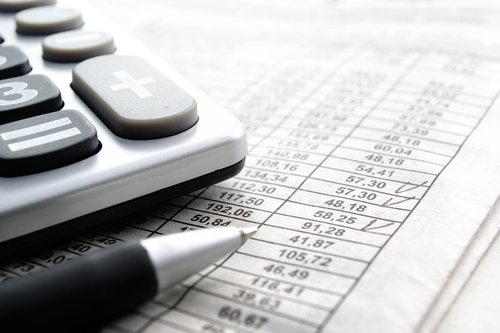When you are starting a business, it’s unlikely that you were attracted by the prospect of tracking expenses, generating accounts or managing the books.
But it’s important to remember that, although being your own boss, having the freedom to strike a better work/life balance or the choice to work on a range of projects are common reasons for deciding to work for yourself, managing the accounts is also a vital part of running your own business. After all, the bills and the taxman always have to get paid!
So, here’s how dedicating just one hour a week to your business finances, you will not just save time on the admin work, but will be able to see the bigger financial picture of your business.
Create an hour-a-week checklist
Start by creating an hour-a-week checklist, which details all the things that you need to review in your business each week.
1) Keep up-to-date with your invoices
Invoices are the secret to getting paid, so it’s important to find the time to invoice every week. It is key to keeping your cash flow healthy and be sure to teach your customers to pay promptly too.
Consider making use of dedicated invoicing software to make sending invoices easier, and you could even set up recurring invoice profiles that let you invoice the same customers for the same amount every month. To save time chasing money, set up automatic invoice reminder emails that remind customers about overdue invoices.
2) Manage your bills
Keep track of the costs you are incurring and pay your bills promptly to keep good relationships with your suppliers and stay on top of your cash flow. As part of your hour a week, set aside some time to go into your online banking site and pay any bills that are due for payment.
3) Check your bank transactions
Do you know what you spent your money on in the last week? Or the last month? And do you know which customers haven’t paid you yet?
If you don’t keep track of your bank accounts, you will forget what you bought – and when your accountant asks you ten months later as (s)he goes through your bank statements, you don’t stand a chance of remembering what each cost was for. Use part of your hour a week to stay on top of your bank transactions to save yourself a last-minute scramble.
If you use an online accounting system, check whether you can import your bank statement directly into your accounts, which could save you time.
4) Check your projects are earning you enough
Do you know which of your projects is your most profitable? What’s your best earner, even after all those taxi fares and special delivery postage costs? It can be hard to know if you haven’t recorded all of your costs!
Use part of your hour a week to link costs back to any projects that you are running to make sure that you have a true view of how much profit you are making on each project. Once you have the full picture, you can make even smarter decisions about where to spend your time.
5) Learn one new fact about your business
What are the secrets your business is hiding from you? Once you’ve got all the admin out of the way, you can use part of your hour to turn detective and learn to read what’s hidden inside your accounts.
As a start, take a look at your profit and loss account for the last few months. Don’t panic, this really is just a sum of what your business earned and what its day-to-day running costs were. Did your income drop at a certain point in the year? Could you smooth this out by broadening your product range, or by invoicing your customers monthly instead of annually?
Take two
As well as your weekly checklist, could you spare two minutes to make things even easier? Here are a couple of things that you can do every day to make your hour a week even simpler.
1) Record as you go
How many receipts do you have in your wallet right now, waiting to be forgotten or lost? If you’ve got a smartphone, record that expense as soon as you spend the money, before you can forget about it.
Many online accounting systems are mobile-friendly and integrate with apps that enable you to take a quick snap of your receipt on your smartphone and upload it to your accounts – removing the need to keep your receipts. And yes, HMRC will accept the scanned receipt as proof of the expense! Just make sure to take a picture of both sides if there’s any information on the back.
2) Track your time, even if it’s not billable
When is the best time to track your time? As soon as you do the work, when the details are fresh in your mind! As soon as you finish a task, just take two minutes to record it, whether it’s billable time or not. Tracking unbillable time will give you a full picture of your profitability, and will help you make good decisions about where to spend your time.
Remember, an hour a week is a small price to pay to get your finances in order – and using the time wisely could be hugely rewarding for your business in the future.
Related: Best UK small business accounting software – A review of what’s out there and a buyer’s guide





